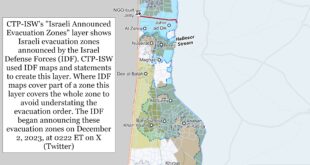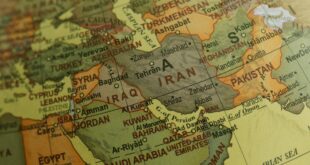The U.N. Security Council requested the secretary-general on Thursday to swiftly deploy an advance team to Libya as a first step to sending monitors to observe an October cease-fire between the country’s warring parties.
Secretary-General Antonio Guterres recommended in late December that international monitors be deployed to Libya, under a U.N. umbrella, to observe the cease-fire from a base in the strategic city of Sirte, the gateway to the country’s major oil fields and export terminals.
The U.N. chief said an advance team should be sent to the Libyan capital, Tripoli, as a first step to “provide the foundations for a scalable United Nations cease-fire monitoring mechanism based in Sirte.”
The council said in a letter approved Thursday by all 15 members that Guterres should “establish and deploy swiftly an advance team to Libya,” as he proposed if security conditions and COVID-19 requirements allow.
Oil-rich Libya was plunged into chaos after a NATO-backed uprising in 2011 toppled longtime dictator Moammar Gadhafi and split the country between a U.N.-supported government in Tripoli and rival authorities based in country’s east, each side backed by an array of local militias as well as regional and foreign powers.
In April 2019, east-based commander Khalifa Hifter and his forces, backed by Egypt and the United Arab Emirates, launched an offensive to try and capture Tripoli. His campaign collapsed after Turkey stepped up its military support of the U.N.-supported government with hundreds of troops and thousands of Syrian mercenaries. This led to the October cease-fire.
The Security Council letter said the advance team should report on preparations and “practical proposals” for cease-fire monitoring after coordinating with Libya’s Joint Military Commission, which includes five representatives from the rival parties, “as soon as possible and no later than 45 days from the date of this letter.”
The council said this will enable members to change the mandate of the U.N. political mission in Libya known as UNSMIL.
The October cease-fire agreement called for the withdrawal of all armed forces from conflict lines and the departure of all mercenaries and foreign fighters within three months, which has not happened.
Guterres gave few details of the monitoring mechanism in his late December report but said the Joint Military Commission “has requested unarmed, non-uniformed individual international monitors to be deployed under the auspices of the United Nations.”
According to the military commission’s concept, “the United Nations would be expected to provide a nimble and scalable team of impartial international monitors to carry out monitoring” in the Sirte area, Guterres said. They would “initially provide oversight and report compliance along the coastal road on the removal of military forces and mercenaries, the deployment of the joint police force, the clearance of explosive remnants of war, boobytraps and mines.”
Guterres said the monitors would work alongside joint monitoring teams from the rival Tripoli and eastern governments “for specific monitoring and verification tasks.”
“The Libyan parties have also conveyed their firm position that no deployment of foreign forces of any kind, including United Nations uniformed personnel, should occur on Libyan territory,” the secretary-general said.
But the Joint Military Commission welcomed offers of potential support to the monitoring mechanism from regional organizations including the African Union, European Union and Arab League under U.N. auspices.
Guterres said the deployment of monitors under the umbrella of UNSMIL to the area around Sirte would require funding and personnel from U.N. member states.
 Eurasia Press & News
Eurasia Press & News



